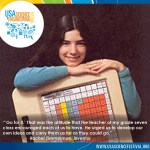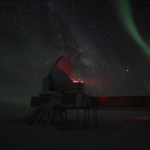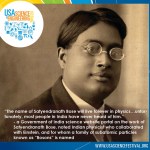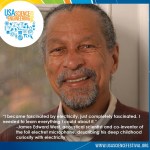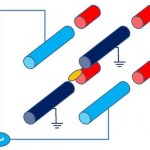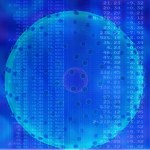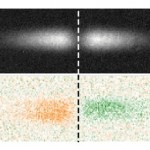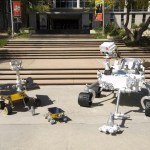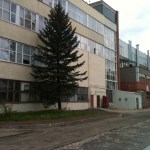Physical Sciences
One characteristic of cranks, quacks, and pseudoscience boosters is a love-hate relationship with science. They desperately crave the respectability and validation that science confers. In the case of medicine, they want to be seen as evidence- and science-based. On the other hand, they hate science because it just won't given them what they want: Confirmation and validation. The reasons, of course, are obvious; their preferred ideas about disease and modalities to treat it are not rooted in science. Rather, they're usually based in either prescientific concepts of how the human body works…
Regular readers probably know that I'm into more than just science, skepticism, and promoting science-based medicine (SBM). (If they're regular readers of my other, not-so-super-secret other project, they might also realize that they've seen this post before elsewhere. I had to stay out late for a work-related event and decided to tart it up and recycle. So sue me.) I'm also into science fiction (hence the very name of this blog, not to mention the pseudonym I use), computers, and baseball, not to mention politics (at least more than average). That's why our recent election, coming as it did…
PLEASE SHARE IF YOU ARE INSPIRED BY THIS STORY!
(Send Us Your Opinion Today: Have you ever been inspired to greatness in scientific invention at the age of 12 like Rachel? Let us know what you think about her achievement!)
Rachel Zimmerman undoubtedly had her teacher’s inspiring "Go for it" advice in mind when she, at the age of 12 in the mid-1980s used her love of science to develop an invention that continues to significantly help the way people with severe speaking disabilities communicate with others.
Why She's Important: While exploring possible topics for a…
"A cosmic mystery of immense proportions, once seemingly on the verge of solution, has deepened and left astronomers and astrophysicists more baffled than ever. The crux ... is that the vast majority of the mass of the universe seems to be missing." -William J. Broad
Despite the wondrous, luminous sights of the night sky, we've learned that normal matter -- protons, neutrons, electrons and the like -- make up only 4% of the total energy in the Universe.
Image credit: Large Suite of Dark Matter Simulations (LasDamas) simulation; Vanderbilt.
The galaxies and clusters of galaxies lighting up…
Satyendranath Bose collaborated with Einstein, and is for whom a family of subatomic particles known as "Bosons" is named
Born during British colonial rule in Calcutta (now Kolkata), India in 1894, Satyendranath Bose, even as a child, showed promise as a creative mathematical and scientific thinker. As a young student he loved experimenting with different methods to solve mathematical problems and improvising various ways to conduct science experiments. When he joined the University of Calcutta in 1916 as a researcher studying the theory of relativity, it was an especially exciting…
I like the word "manufactroversy."
It's a lovely made up word that combines the two words "manufactured controversy" and is, to boil it down, defined as the art of creating a controversy where none really exists. In the case of science, it's the concerted effort to make it seem as though there is a legitimate scientific controversy when in reality there is not. Indeed, one might say that the very purpose (or at least the main purpose) of this blog is to discuss manufactroversies. These include issues such as quackery, where promoters of pseudoscientific, unscientific, and prescientific…
Looking back on his childhood days in Prince Edward County, Virginia, acoustical scientist James Edward West, says curiosity ruled his life. "If I had a screwdriver and a pair of pliers, anything that could be opened was in danger," remembers James with a laugh. "I had this need to know what was inside." One day when he was eight years old, his curiosity resulted in a harrowing, but life-changing experience. While propped on his bed's brass footboard, he stretched upward to plug the cord of a radio he had repaired into the ceiling's empty light socket, just to see what would happen. Suddenly…
As much as I write about the infiltration of quackademic medicine into medical academia, there is one particular area that is being increasingly invaded by such quackery. It's an area that you wouldn't necessarily expect, although anyone who's read The Men Who Stare at Goats might not be so shocked. Yes, I'm referring to the military, and, as I've documented time and time again, increasingly our men and women in uniform are being subjected to abject quackery. What they need and deserve is the very best science-based medicine that we as a nation have to offer. Instead, what more and more of…
"The particle and the planet are subject to the same laws and what is learned of one will be known of the other." -James Smithson
The entirety of the known Universe -- from the smallest constituents of the atoms to the largest superclusters of galaxies -- have more in common than you might think.
Image credit: Rogelio Bernal Andreo of http://blog.deepskycolors.com/about.html.
Although the scales differ by some 50 orders of magnitude, the laws that govern the grandest scales of the cosmos are the very same laws that govern the tiniest particles and their interactions with one another on the…
In which we do a little imaginary Q&A to explain the significance of Tuesday's Nobel Prize to Dave Wineland and Serge Haroche.
------------
I did a quick post Tuesday morning noting that the latest Nobel Prize in Physics was awarded to two big names from my corner of the field. This would've been a great time to drop a long explainer post about what they did and why it's cool, but alas, I have a day job, and the Nobel committee stubbornly refuses to tell me who they're giving the prizes to in advance. Oh, well.
Still, I'm just vain enough to think I can add something a little different…
There's been a lot of bloggage recently about a new study in the Proceedings of the National Academy of Sciences indicating bias toward male students on the part of faculty who thought they were evaluating an application for a laboratory manager. Half of the faculty in the study were given an application with "Jennifer" at the top, the other half one with "John" as the first name, and both male and female faculty rated the male student more highly, and would offer the male student a higher salary. Sean Carroll and Ilana Yurkiewicz talk about the study and the results in more detail.
So,…
Last week, in the post about fermion conduction, I left a reference hanging:
There’s nothing physically blocking the atoms from flying right through the channel– in fact, an atom that enters the channel will always exit the other side without slowing down along the way. This is termed “ballistic,” a term that will always have a special place in my heart thanks to an incident at my Ph.D. defense.
Which was what? Let’s just leave that hanging to see if anybody actually reads this far. I can explain it in a comment if people want to know.
A couple of people asked for the explanation in comments…
One of our constant themes is the innovative ways that tools and ideas from math and physics can lead to new insights in the life sciences. Take, for example, a recent study produced by a group that included a professor of mathematics, an oncologist who works in pharmaceutical research and has a Ph.D. in mathematics, an electrical engineer and applied mathematician who is doing a postdoc at Harvard Medical School, and physicians in a medical center research lab.
The idea was to create a mathematical model of a medical syndrome – in this case neutropenia, the low counts of the white blood…
One of the overarching issues, if not the overarching issue that makes so-called "complementary and alternative medicine" (CAM)—or, as it's now more commonly called, "integrative medicine"—so problematic is prior plausibility. It's also one of the most difficult to explain to the lay public, because to someone not trained in science it can sound like not being open-minded. I like to joke about this whole concept by saying that it's good to be open-minded but not so open-minded that your brains fall out. In other words, the main difference between science-based medicine (SBM) and evidence-…
So, it's been a while, but let's see if we can't hit the ground running with a good physics post. There have been a few notable physics events since I went on hiatus, but for a return to physics ResearchBlogging, we'll go with something near and dear to my heart, ultracold atoms. Specifically, this Science paper (free arxiv version) about passing atoms through a narrow channel. This is a cool bit of subfield-crossing physics, so let's dust off the Q&A format, and go through it.
Hey, dude, long time no see. So, what's the deal with this paper? Well, the title pretty much tells you what's…
“Imagine that you wake up in the morning feeling nothing special, yet you find yourself inexplicably behaving just a bit differently during the day. For example, you take a sniff every time you hear a tone,” says Prof. Noam Sobel. Of course, the people this actually happened to knew they had volunteered for a sleep experiment in Sobel’s lab. They knew that their sleep patterns had been closely monitored. But they had no recall, whatsoever, of the “lesson” they had learned while snoring peacefully. It was the sniffing that gave it away: While asleep, they had undergone conditioning to…
Choose what the VLT observes - public vote on a science target one night this autumn
Ralph Cicerone Public Lecture - Contemporary Climate Change as Seen through Data - video of Ralph Cicerone lecture on Climate Change at the Aspen Center for Physics this summer
Cliff at Asymptotia summarises the "Future of Physics" public symposium at the Aspen Center for Physics.
With bonus pics of physicists gone wild!
How did I miss this?! - the Definitive Dunkin' Donuts study on which professions need coffee the most...
"scientists/lab technicians are the professions that need coffee the most,…
"I am looking at the future with concern, but with good hope." -Albert Schweitzer
As you all know, the most ambitious interplanetary mission ever attempted -- Mars Science Laboratory -- successfully landed its Curiosity rover on Mars earlier this week. Last night, I had the opportunity to go on my local news and speak a bit about it, and as always, it was an absolute pleasure.
(Video credit: KGW / Ben Lacy / Carey Higgins / Steph Stricklen.)
Of course we got to talk about the rover itself and its science potential, and exactly how much more sophisticated it is than any of its martian…
This is an enhanced version (with some upgraded images and text) of an article I first wrote over two years ago. It is just as valid today as it was back then, only today, I have a special offer to go with it. Next week, a bunch of cosmologists and myself are getting together and all writing about dark energy. And I want you to have your say.
So at the end of this post, ask your dark energy questions. Ask anything and everything you ever wanted to know about dark energy. I'll choose the best one (or, space & time permitting, more than one) and write a special post on it for you then.…
I recently spent a week in Lithuania visiting biophysical laboratories and giving a couple of seminars. My host was Daumantas Matulis of the Institute of Biotechnology at Vilnius University, where they have an EU grant that includes funds for bringing in visiting scientists from other countries (thank you EU!). Although my sampling of the science in Lithuania is quite limited – the labs that I visited exhibited some interesting similarities. Physically, the labs at the Institute of Biotechnology in Vilnius and in the Institute of Cardiology in Kaunas consist of large collections of small…
